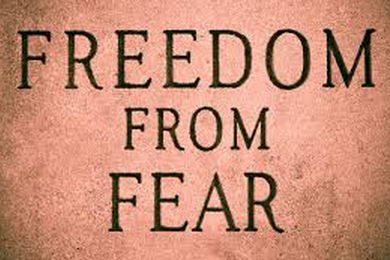Isn't it better, learning a skill that reduces discord? Embracing differ-ences honors everyone trapped in the web of a conten-tious relationship. It helps us relate with others.
This practice prevents the two forms of inauthentic relating: eva-siveness and indirect communication.
 Can you imagine what it would look like, clearing the air with an irritating person, doing so nonjudgmentally, arriving at answers never dreamed as possible?
Can you imagine what it would look like, clearing the air with an irritating person, doing so nonjudgmentally, arriving at answers never dreamed as possible? Embracing differences in others steers us away from assuming, analyzing, interpreting and assessing the behavior and words others use.
By eliminating this tendency to judge---to jump to conclusions---harmony and ease grows in the relationship. Emotional safety is more likely when we keep our eyes on ourselves. Doing this reducers the tendency to find fault with others.
When we analyze or make assumptions about others, we are not being present. Instead, we are being controlling, manipulative. When we try to control others, distance and distrust grows between us and the object of our manipulation.
Embracing differences promotes intimacy. It meets the need for those in the relationship to understand and be understood. When using this skill, fears in the relationship dissipates.
Embracing relationships fearlessly is more likely to take place when judgment is absent. Freely, we can be who we are.
Defining the Skill
Embracing differences reminds me of the following:Embracing differences is taking in different points of view so we can consid-er them in relation to one another. It is listening and empathizing with opinions that differ from ours. We do this while grounded with our bounda-ries and perspective.
I add a corollary: don't be so open our brains fall out."Our mind is like a parachute. It only works when it is open."
This skill is step-ping from black and white thinking. Typ-ically, when someone sees things different-ly than us, we label them as wrong.
Today's skill avoids that. When there is a difference we have three possibilities: flee, yield or fight. This truth skill provides another option.
We expand our vision.
Holding different positions, without either person being wrong, allows us to fit in, just as we are. There are sacrosanct areas: murder, stealing, lying, adultery, etc. are never right. But other than these, and other critical values, the sky is the limit.
This skill broadens our perspective. We move beyond preconceived notions when exercising this skill. Narrow-mindedness is eliminated.
Right-sized, we are. The opinions of others are respect-ed as equally as ours. There is a "we" left standing after negotiations with others.
It isn't all about what we want, or all about the desires of others.
This is the essence of Tradition 2 in Recovery. Every person's voice is heard, valued and honored. Their needs and our needs are both acknowledged.
We become aware that we are part of something bigger than our-selves, when relating with another or a group. This is Tradition Two living, operating by consensus.
Do you know what is absent with this approach? Dominance, ego, pride. Instead, there is mutuality, reciprocity, honesty, authenticity, integrity and emotional safety.
This provides a win-win situation when conflict arises.
No longer is it "Our way or the highway." Embracing differences moves us beyond passivity, letting others steamroll over our values. It is expressing our feelings and needs. Our point of view contrib-utes necessary values to the relationship.
Today's skill is the antidote to codependency. In this post, this subject is detailed. Here's a one sentence definition: codependency is surrendering our opinions or values because we fear the anger or rejection of another.
I don't suffer from codependency. A slave to it, I was. For decades.
I was miserable. Freedom from its shackles the result of working intensely on this weakness, for three years.
I am free of this scourge now for twelve years. Al-Anon Family Groups, its principles, and its literature liberated me. I am no longer a slave to the opinions of others.
Their opinions matter. But, my perspective is equally important. I am aware of my wants.
If we don't say what we want, there is zero chance of that happening. We are also being controlling. We are playing it safe to avoid an unwanted outcome.
We want others to know the real us. Instead of complying, we want to feel our emotions and say what we want. This is presenting our true selves.
It is much better expres-sing the needs beneath our feelings. When we do, there is as chance of them being met.
Anne Wilson Schaef's book, Codependence Misunderstood-Mistreated is an enormous help for moving beyond codependency. So is the book Boundaries, by Cloud and Townsend.
Our life improves when embracing differences. Power plays become a thing of the past. Our perspective broadens.
We are happier, enjoying the unique "we" created each time we relate with another.











2 comments:
Dear Pablo,
You are right that so many of us interpret and assess another's behavior. We do this mainly when we are projecting our issue onto someone else.
It is fascinating to learn that this is actually a form of control.
So many of us make judgments and assumptions based on our preconceived notions. I am guilty of it and I am glad that you have given me a reminder on how to relate authentically.
I feel like I've gotten quite a bit of experience with differences in my life living here in America, because everyone here is very diverse and you get a lot of chance to relate to all sorts of people. Also the place that I work at has a diverse culture and helps me embrace other ethnicities. This is helpful in everyday life as well, being able to interact with all sorts of people and personalities, helps make you a divergent person.
Post a Comment